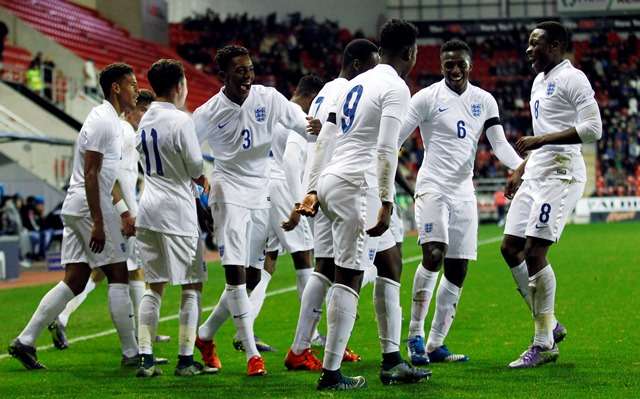by Adam Virgo
ARE young English players given too much, too young? After watching our performances at the recent Under-17 World Cup, I'd have to say yes.
England failed to win a game, exiting the tournament at the group stage. But it wasn't the results that troubled me, bad as they were.
It was the body language. I watched Mali, Nigeria, teams like that, who looked like they'd run through brick walls for their country. New Zealand were 5-1 down to France, but their players were still running around like their lives depended on it. Ours just looked like they didn't care.
I know players make mistakes. I know they miss chances, especially at that age. But it just seemed there was something more fundamental amiss. And, to me, it all comes down to hunger.
When I first started at Brighton, I was on £150 a week. Once I was training with the first team, that went up to £350. But my appearance money was something like £600.
So, if I played twice a week, I'd almost quadruple my wages. That's some incentive for a 17 or 18-year-old. You'd think to yourself ‘Bloody hell, I need to play'.
Don't get me wrong. For young lads, we earned a decent living. But it wasn't the kind of money where you could go and buy a flash car and a mansion.
You drove around in your Ford Focus or your Escort and looked forward to the day you could buy something nicer.
You also wanted to stop doing those YTS jobs – cleaning boots, sweeping out changing rooms, tidying the manager's office.
Now, all that has changed. There's one lad who, I discovered, is earning five grand a week at a top Premier League club. He's only 17. He hasn't even played a first-team game.
I know of another who – as a teenager – earned about £12m when he signed a five-year deal and was subsequently released after a handful of games.
These days, kids in academies can earn the same amount of cash as seasoned pros in League One, despite having achieved absolutely nothing.
And what worries me is that these lads already think they've made it. Success used to be getting into the first team. Now it's your first contract.
If you're in the youth team, earning a very comfortable amount of money, where does the motivation come from? Will you really have the desire to go on and reach the top of the game? That's why, from the age of 17-21, I'd like to see players salary-capped like they are in the USA.
I know the US is different and that EU law would make it difficult. But Financial Fair Play already caps clubs' spending, so why not make it a facet of that?
Each club would be allowed to spend the same fixed amount on youth team wages, which wouldn't be a percentage of their income. That would stop the big clubs hoarding talent.
That cash could be split however they wished. If, for instance, you've got an exceptional youngster who, you feel, is the next big thing, pay him good money – say £1,000 week, £5,000 for an appearance. The remainder is spread around the rest.
Or maybe implement a rule where the maximum you could earn as a 19-year-old is £30,000 a year. I'm pulling figures out of the air, but the point is this: some way must be found to keep players hungry.
You look at Jamie Vardy, Dwight Gayle, Charlie Austin – they've all had that old school apprenticeship. They've played part-time and worked for a living. You can see that hunger in the way they fight to stay at the top.
It's no surprise that players signed from the lower leagues are making a resurgence – and I hope it continues. Because, based on what I saw in Chile, there's isn't much coming from the top.

















